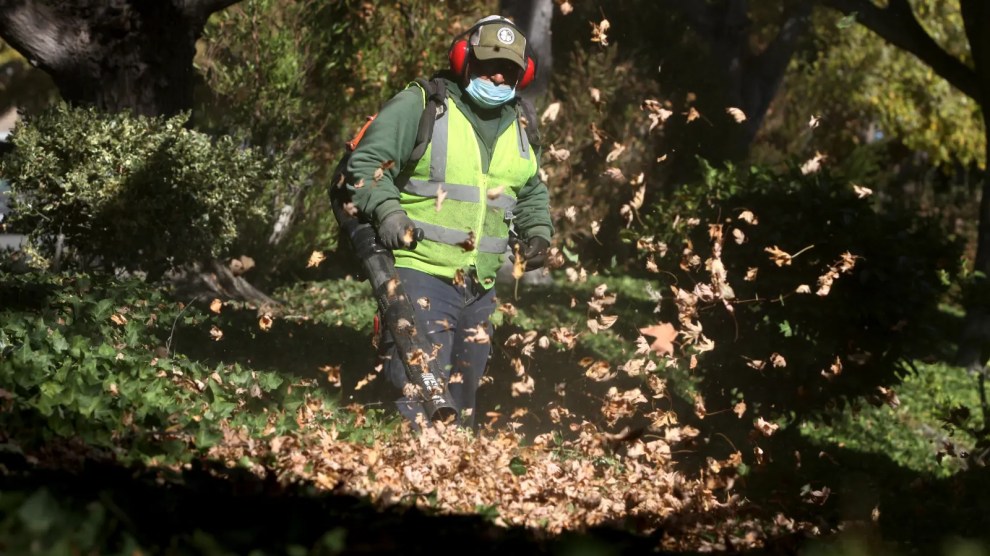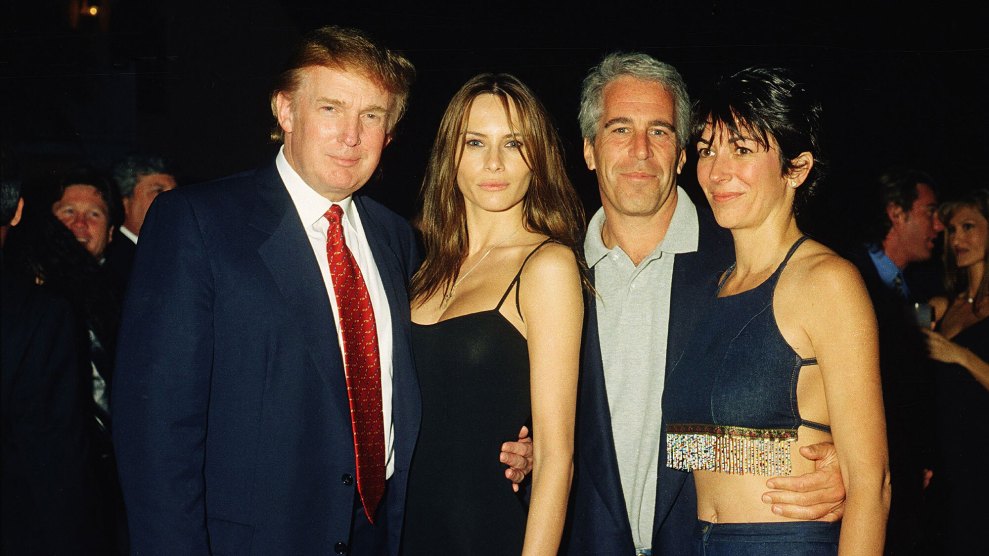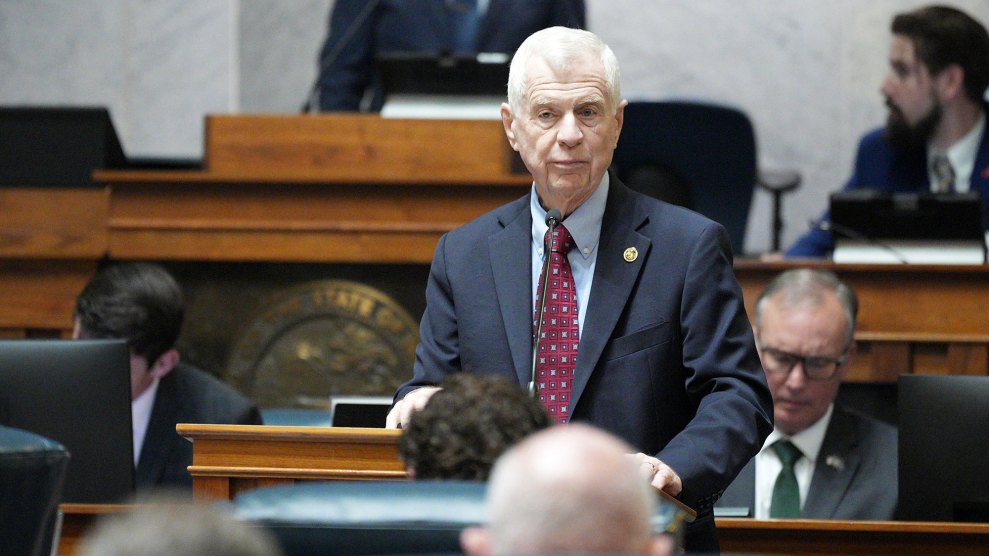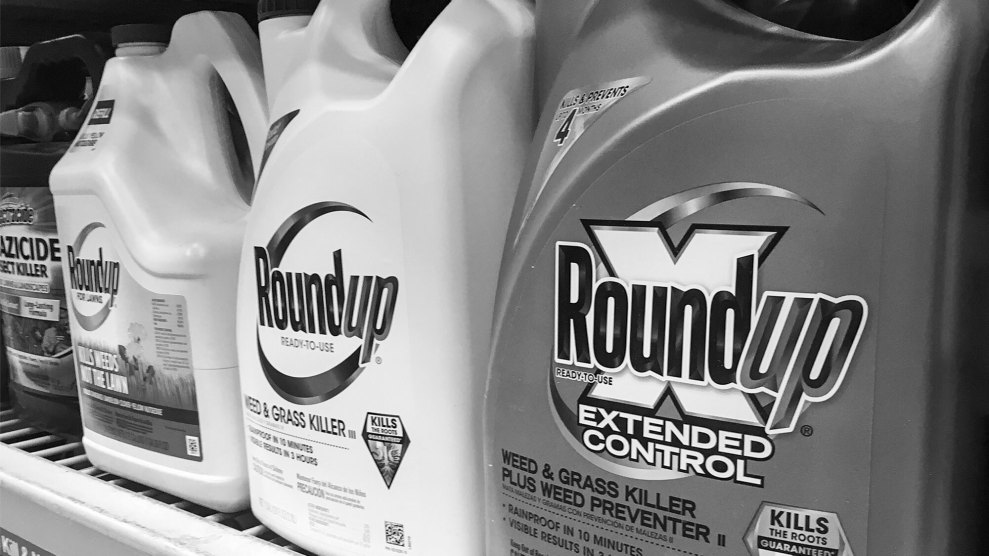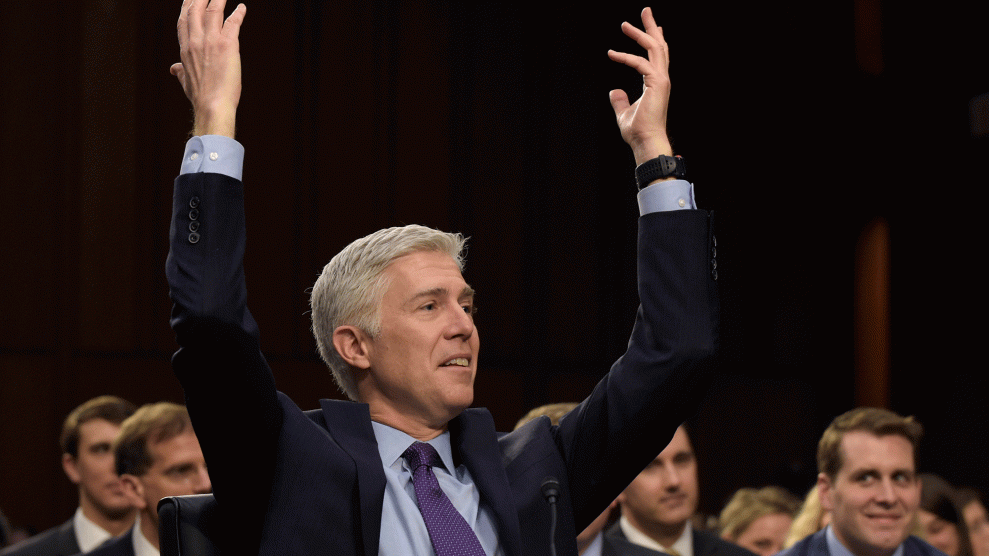
Supreme Court nominee Neil Gorsuch demonstrating how the late Justice Byron White played basketballAP Photo/Susan Walsh
Two days into Neil Gosuch’s confirmation hearings, the proceedings have yielded little insight into the Supreme Court nominee’s views about important legal precedent or landmark cases. In keeping with the tradition of previous nominees, he has declined to give any opinions on past or future cases, or explain his personal views on controversial legal issues from abortion to gay marriage. And he’s sidestepped questions about his work in the Bush Justice Department, which included helping the administration defend torture and denying access to the courts for detainees at Guantanamo. But the hearings have unearthed some more obscure trivia about the 10th Circuit judge. Here are some of the most interesting tidbits that have emerged so far:
He likes David Foster Wallace: Waxing poetic about his view of the law, Gorsuch told the Judiciary Committee, “We’re now like David Foster Wallace’s fish. We’re surrounded by the rule of law. It’s in the fabric of our lives.”
Gorsuch was referring to the story the late writer told in a 2005 commencement speech at Kenyon College. “There are these two young fish swimming along,” Wallace told the graduating students, “and they happen to meet an older fish swimming the other way, who nods at them and says, ‘Morning, boys. How’s the water?’ And the two young fish swim on for a bit, and then eventually one of them looks over at the other and goes, ‘What the hell is water?'”
His confirmation hearing isn’t the first time Gorsuch has referenced Wallace’s fish. He’s invoked it at least once before, in an article for the Harvard Journal of Law and Policy. “If sometimes the cynic in all of us fails to see our Nation’s successes when it comes to the rule of law,” he wrote, “maybe it’s because we are like David Foster Wallace’s fish that’s oblivious to the life-giving water in which it swims.”
He thinks it’s okay for a women to be president even if the founders didn’t: Sen. Amy Klobuchar (D-Minn.) asked Gorsuch about his belief that judges should interpret the Constitution the way the Founders would have written it, better known as originalism, which would seem to make it difficult for the law to adapt to modern life. “I’m not looking to take us back to quill pens and horse and buggies,” Gorsuch told her. But Klobuchar pressed on. She wanted to know how he could square his originalist philosophy with the fact that the Constitution as first written didn’t allow women to vote. “So when the Constitution refers 30-some times to ‘his’ or ‘he’ when describing the president of the United States, you would see that as, ‘Well, back then they actually thought a woman could be president even through women couldn’t vote?'” she asked. In response, Gorsuch growled, “Of course women can be president! I’ve got two daughters. I hope one of them grows up to be president.”
He loves The Hitchhiker’s Guide to the Galaxy: Sen. Ted Cruz (R-Texas) opened his questioning of Gorsuch by asking him, “What is the answer to the ultimate question of life, the universe, and everything?” The judge responded with a smile, “42.” Gorsuch explained that the question is a joke he uses to break the ice when swearing in nervous lawyers.
Gorsuch claimed everyone knew the answer to the question because it comes from Douglas Adams’ cult classic novel, The Hitchiker’s Guide to the Galaxy. It was clear that aside from Cruz, most of the senators on the Judiciary Committee had not read the book. “If you haven’t read it, you should,” Gorsuch told them. “It may be one of my daughter’s favorite books. And so, that’s a family joke.” Cruz gave Gorsuch a dreamy look and said he saw Gorsuch’s Hitchhiker joke as “a delightful example of the humanity of a judge that your record has demonstrated.”
He had a pet goat: In his opening statement Monday, Gorsuch gave a shout-out to his daughters, who were home in Colorado watching the hearings on TV. He reminisced about “devising ways to keep our determined pet goat out of the garden,” one of his favorite memories with them.
His kids have engaged in “mutton busting”: Cruz got Gorsuch talking about the Denver rodeo, where he takes his law clerks every year. The spectacle finishes up with the prize steer visiting the lobby of the Brown Palace hotel. As part of the festivities, the rodeo features something called mutton busting—a children’s version of bronco riding, done on sheep instead of bulls—which Gorsuch described like this:
You take a poor little kid, you find a sheep, and you attach the one to the other and see how long they can hold on. And you know, it usually works fine when the sheep has got a lot of wool and you tell them to hold on. I tell my kids hold on monkey-style. Really get in there, right? Get around it. Because if you sit upright, you go flying right off. Right? You want to get in. The problem when you get in is that you’re so locked in that you don’t want to let go. Right? So then the poor clown has to come and knock you off the sheep. My daughters got knocked around pretty good over the years.”





